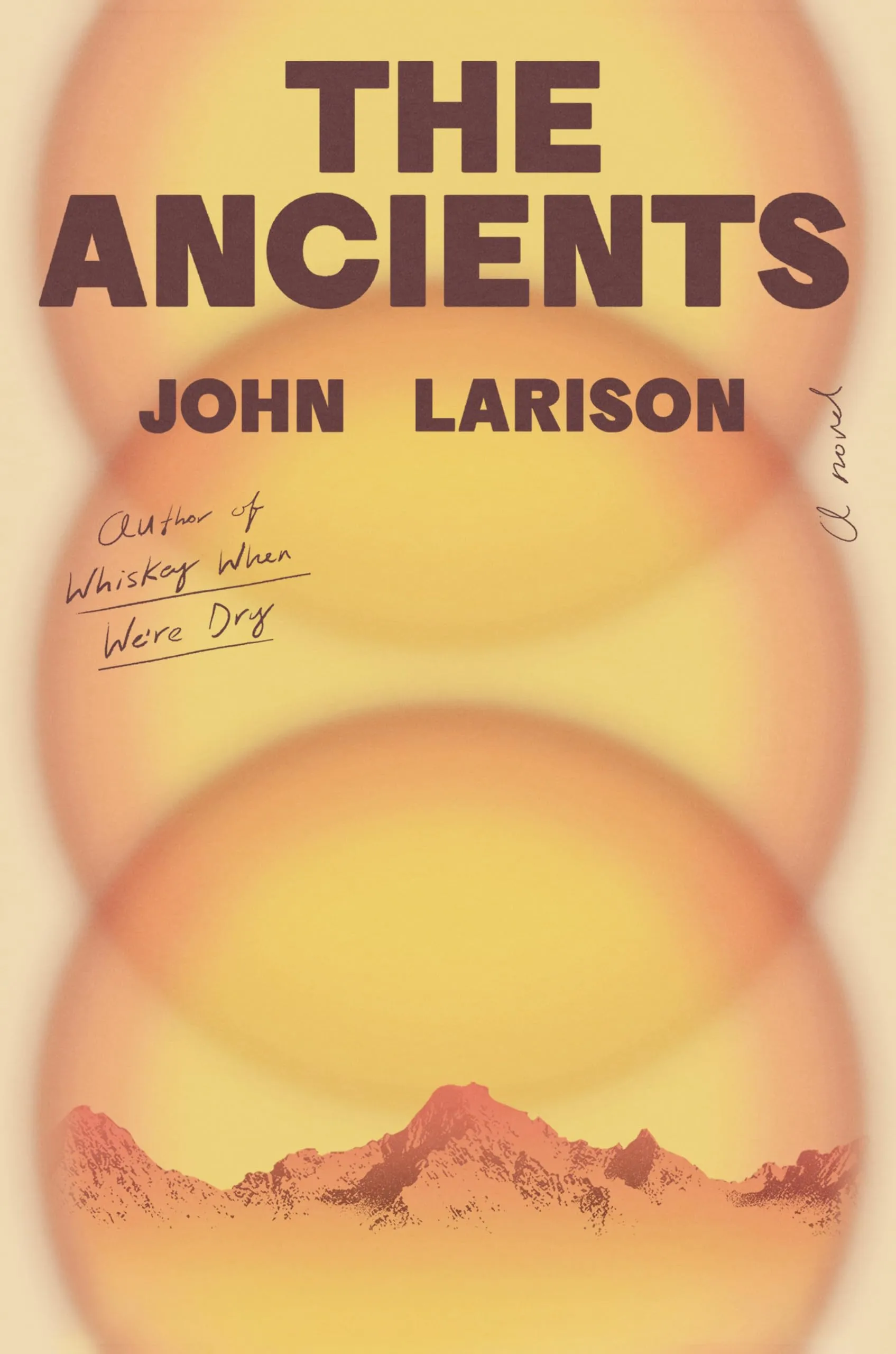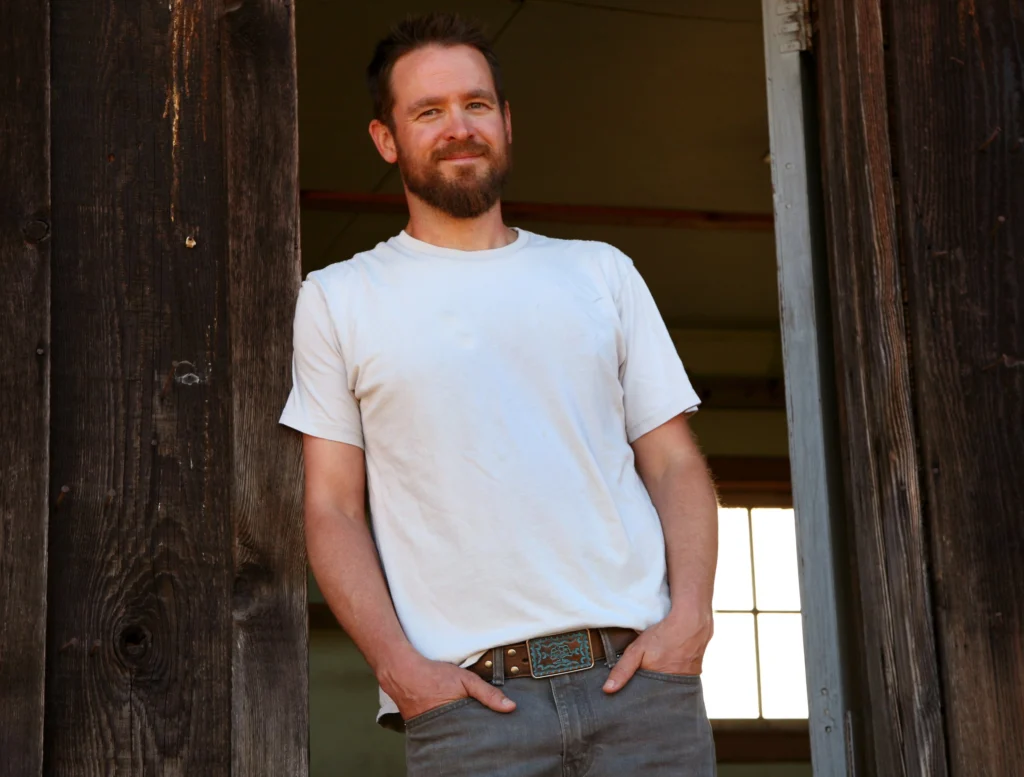
An Interview with John Larison
Words By John Larison, Interviewed by Melissa Paulsen
Your latest novel, The Ancients, takes place in a post-apocalyptic world impacted by climate change. How did this setting come to fruition and what inspired you to tell this evocative story?
The Ancients was a wild ride. I knew I wanted to write the kind of novel I wasn’t finding on bookshelves, a book capable of holding the enormity of the climate crisis in the palm of one hand. The book grew to become the medicine I needed—and I hope it hits readers in that way too.
The writing process, though, was harrowing. The first three versions were set in the deep human past. The final two were set in the deep human future. I worked on the book for seven years and completed thirty-seven drafts of the fifth version. No doubt, I grew as a writer and a person during the process, just as the characters grow on the page.
In both The Ancients and Whiskey When We’re Dry, the setting plays a prominent role in the narrative. How do you approach the complexities of worldbuilding for your novels?
My books are often born from their places. To prepare to write a place, I prefer to spend time there. I try to experience the textures, smells, and other sensory elements from my characters’ vantage point. What will they be noticing about this landscape? How would they describe what they’re seeing to themselves? Once I feel grounded in the physicality of the setting, I’m ready to create the histories and cultural realities of that world.
The Ancients features three distinct sets of characters and Whiskey When We’re Dry includes a diverse cast of supporting characters. What do you like to focus on when creating your characters?
I don’t let myself think of them as characters. They are people, and as people they are torn and conflicted. They want two mutual, exclusive outcomes, and that tension comes through in their voice and their actions. They make mistakes. They regret their mistakes, even as they repeat them. Most importantly, my people are mysteries to themselves. We would never reduce a friend to the sum of their identity, and so we should never reduce the people on our pages to the sum of theirs. The best “characters” always defy classification.
One of the aspects that drew me into The Ancients and Whiskey When We’re Dry was your vivid and lyrical writing style. Who are some of your biggest writing influences?
Such a long list! When I was finding my footing as a novelist, I was drawn to Michael Ondaatje, Toni Morrison, and Normal Maclean. I found these writers’ prose to be precise and rich with resonances that felt ineffable. Each time I reread one of their works, I saw the book and myself differently.

Your books incorporate several diverse themes. The Ancients focuses on hope, resilience, and stewardship whereas Whiskey When We’re Dry explores family, identity, and survival. How do you approach blending all these ideas into your narrative without letting them interfere with one another?
For me, theme arises organically or not at all. A novel’s themes are an extension of the concerns the novelist is obsessing over when they should be sleeping. Theme bubbles from the subconscious onto the page; calculation and craft would only taint this holy process.
Every writer’s journey is unique, but yours is particularly fascinating as you’ve mentioned you never set out to become a writer. What is something you’ve learned about the industry that writers should know?
Early in my writing life, I devoted a lot of time to reading interviews with agents and editors to learn to think like these literary gatekeepers. The lessons I learned helped expand my understanding of how fiction works beyond the critiques common in a classroom. But not until Whiskey When We’re Dry did I truly understand how novel writing is a team sport.
Novelists aren’t just trying to finish a long work of fiction. We’re trying to write a book that will move and inspire its readers so personally that they will call in favors and advocate for the novel in meetings and hallway conversations. A book’s team starts with the agent and editor but eventually includes booksellers, book clubs, and the most important teammates of all: everyday readers who share the novel with their friends.
Writers are often advised to read A TON to hone their craft. What book are you most looking forward to reading in 2025 and why?
I’m loving Percival Everett’s James. Dark context, bright prose. That’s a magical combination that I hope to figure out someday.
The publishing process can often feel daunting and intimidating. How did you keep your spirits high when querying your work and do you have any encouragement for writers wrestling with self-doubt?
“Success” (defined here, with hesitation, as publication) is comprised of three parts: talent, luck, and determination.
Talent barely matters, because with a wealth of determination, you can make up for a significant deficit of talent. Luck barely matters either, because luck is a function of time, and with enough determination you will still be playing when the lucky cards are finally dealt.
If writing is fun and meaningful for you—and you feel that writing improves your life—keep writing, keep striving, keep learning, and success will become inevitable.
Do you have any new projects coming out soon or in progress?
I’m finishing up my next book now, Siren Country, and I’ve started writing the next one. That book is funny; the narrator is a surf bum with a prosperous brother who needs his help. I think readers—especially these days—want a good laugh.